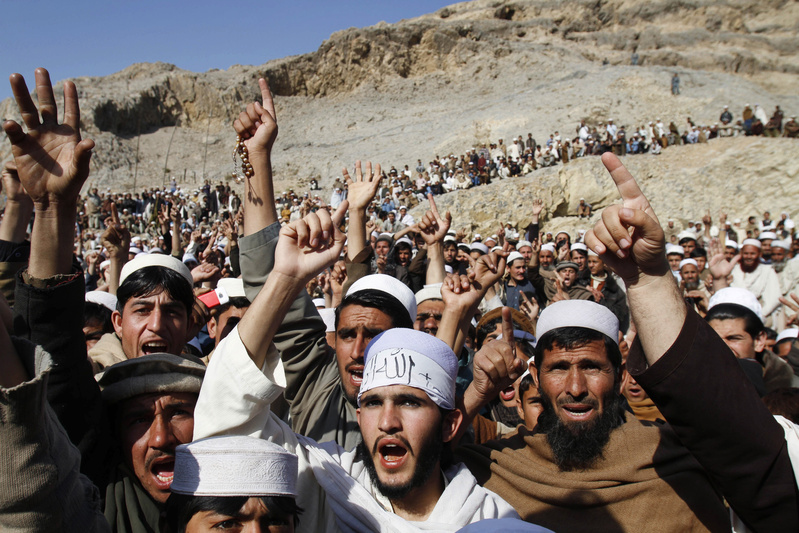Three Republican presidential candidates are shamelessly criticizing President Obama for apologizing to the government of Afghanistan for the incineration of Qurans at a U.S. military base in that country. Mitt Romney, Newt Gingrich and Rick Santorum should be praising the president instead, not only because acknowledging the offense to Muslim sensibilities was the decent thing to do but also because it may have prevented an even worse backlash than the one that has cost six American lives so far.
That said, the violence — in which more Afghans than Americans have been killed — is an ominous reminder of the fragility of the relationship between the United States and its allies on the one hand, and an Afghan populace wearied by a decade of Western occupation on the other.
Especially shocking was the execution-style murder of two U.S. service members assigned to the supposedly secure precincts of the Interior Ministry. The gunman was an Afghan soldier. Afterward, U.S. commanders withdrew Western military advisers from various Afghan ministries as a precaution. The symbolism was stark: Americans couldn’t trust their Afghan allies.
As tragic as it was, the shooting at the Interior Ministry is only one incident. U.S. Ambassador to Afghanistan Ryan Crocker was right to reject the notion that it justified suddenly abandoning cooperation between NATO and an Afghan government that is belatedly taking on more responsibility for the country’s security.
Crocker also properly contrasted the gunman’s betrayal with the fact that “the Afghan security forces, throughout this whole process, have been seeking to quell these demonstrations. They’ve done so with loss of life on their side as well as some of the protesters, and they have been defending U.S. installations.” That perspective is an important one. Crocker suggests that the next step is to “let things calm down, return to a more normal atmosphere and then get on with business.”
But the anti-American violence that followed the Quran burning may have more to do with the “normal atmosphere” of Afghan-U.S. relations than Crocker wants to admit. Despite talk of partnership and common interests, Americans and Afghans remain divided culturally and religiously. Many Afghans don’t believe Obama’s assurances that the damage to the Qurans was “inadvertent.”
After stabilizing the military situation in Afghanistan with a surge of 33,000 troops in late 2009, Obama is now withdrawing forces, and Defense Secretary Leon Panetta has expressed hope that the U.S. combat role in the country will end in 2013, a year earlier than NATO originally estimated.
Meanwhile, the U.S. is gingerly exploring the possibility of a political solution in Afghanistan while reorienting its anti-terror strategy to targeted attacks on individuals. Someday — sooner rather than later, we hope — U.S. troops will be gone and there will be less of an opportunity for clashes of culture like the conflict over the burning of the Quran.
Send questions/comments to the editors.



Success. Please wait for the page to reload. If the page does not reload within 5 seconds, please refresh the page.
Enter your email and password to access comments.
Hi, to comment on stories you must . This profile is in addition to your subscription and website login.
Already have a commenting profile? .
Invalid username/password.
Please check your email to confirm and complete your registration.
Only subscribers are eligible to post comments. Please subscribe or login first for digital access. Here’s why.
Use the form below to reset your password. When you've submitted your account email, we will send an email with a reset code.